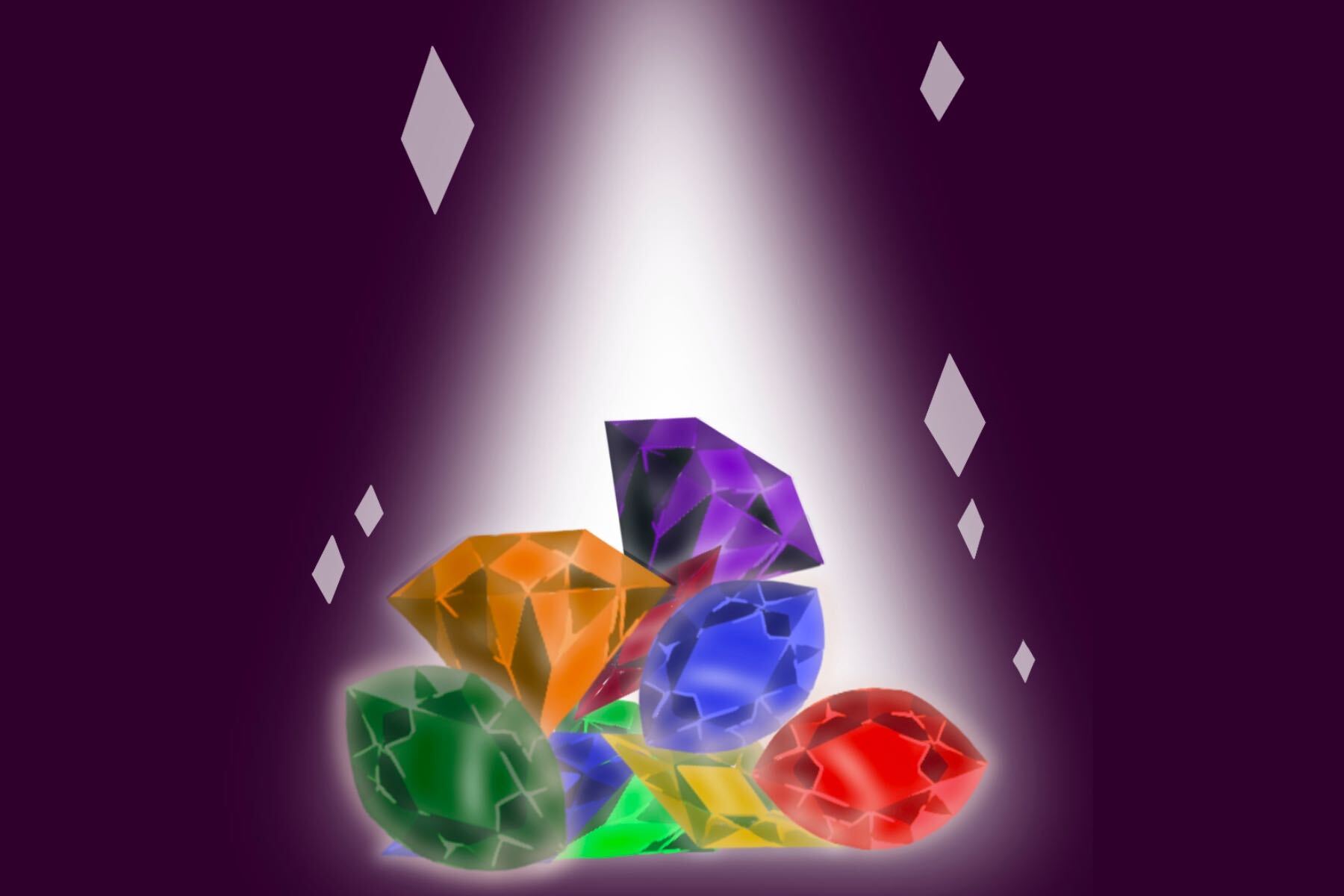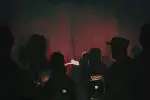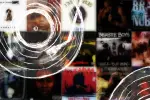“F— it,” began a brief but passionate message from Run the Jewels: “The world is infested with bulls— so here’s something to listen to while you deal with it all.” The statement — which announced the early release of their latest album “RTJ4” — was posted just over a week after George Floyd was murdered and amidst the rallying cries of protesters and activists around the world.
As the Los Angeles Times noted in its review of “RTJ4,” the album serves as a fitting catharsis for the ongoing struggle against police brutality, systemic racism and oppression that permeates the nation. The timely album, which explicitly references police chokeholds and the phrase “I can’t breathe,” is “exactly what America needs right now,” according to Vulture, and is “essential listening for 2020,” as stated in a recent Vox article. At many points raging, at other points pleading, “RTJ4” amplifies much of the grief that surrounds the murders of George Floyd, Breonna Taylor, Ahmaud Arbery and countless other black Americans.
“It’s not rare, what happened; what’s rare is that this one time, people were awake to it — tuned in and paying attention to what’s going on. People talk about our rhymes being ‘dystopian’ … It’s happening right f—ing now,” said El-P, rapper, producer and one half of Run the Jewels. The other half — activist and rapper Killer Mike — recently appeared on television, instructing his hometown of Atlanta to “plot, plan, strategize, organize and mobilize” in protest against an unjust police force. Sentiments from both artists appear to reach a boiling point in “RTJ4,” with lyrics that openly attack bigotry and authority with unrelenting intensity. To many listeners and critics alike, the early release of “RTJ4” is an unprecedented call to action at a time when it is desperately needed — despite the fact that little about “RTJ4” is unprecedented.
Mass incarceration, racial profiling and police brutality are some of the many topics that have been scrutinized in the duo’s previous three albums. The quote from El-P was from a 2015 interview about the killing of Michael Brown six years ago, not of George Floyd today. Regardless, it holds the same relevance. Killer Mike did say “plot, plan, strategize, organize and mobilize” in his recent address to Atlanta, but it is a reprise of his message to an enraged Baltimore following the 2015 death of Freddie Gray: “…after the fires die down: organize, strategize and mobilize.” Regardless, it holds the same relevance. The “I can’t breathe” lyric from the album’s sixth track, “walking in the snow,” was intended as a reference to Eric Garner. Regardless, it holds the same relevance.
“RTJ4” acts as a fatigued “I told you so” that laments its own existence. The album echoes many of the duo’s previous commentaries on police conduct, but now with greater despair. As a result, “This can’t keep happening” is a mentality shared by current protests and “RTJ4.” “And at best, I’m just getting it wrong/ and at worst, I’ve been right from the start,” a lyric from the emotional “pulling the pin,” perfectly illustrates the idea that “RTJ4” is not as much of a lone reaction as it is a continued vocalization of societal anxieties that have existed since the very start of Run the Jewels, and long before. History repeats itself, and Run the Jewels is pissed about it.
“Run the Jewels 2,” Eric Garner and Michael Brown
Corruption and police brutality are themes that run deep within the roots of both El-P and Killer Mike’s respective careers, even before the inception of Run the Jewels. In 2002’s “Deep Space 9mm,” El-P muses, “Who owns police?” Killer Mike’s inflammatory 2012 song “Reagan” answers El-P with a nod to prison labor: “You think I am bulls—tin’, then read the 13th Amendment / Involuntary servitude and slavery it prohibits/ That’s why they givin’ drug offenders time in double digits.”
The union of El-P and Killer Mike in 2013 saw the beginning of Run the Jewels and a synthesis of social attitudes between the two artists, including views on police brutality. Released in October 2014, under circumstances that run parallel to the release of “RTJ4,” “Run the Jewels 2” — or simply “RTJ2” — has lots to say about police violence.
The killings of Michael Brown and Eric Garner caused national uproar earlier in 2014, which brought an extra weight to the already solemn “RTJ2.” A Pitchfork article notes how one of the “RTJ2” tracks, “Early,” describes circumstances that are frighteningly similar to Michael Brown’s death, despite having been written long before the shooting had taken place.
The song sees Killer Mike as a father stopped by police without probable cause, ultimately witnessing the death of his wife at the hands of a trigger-happy officer. “And I’d be much too weak to ever speak what I seen/ but my life changed with that sound,” Killer Mike raps as the verse ends, transitioning into a hook that whines “Get out, get out, get out, get out,” in desperate, almost psychedelic turmoil.
Another popular track on “RTJ2,” titled “Close Your Eyes and Count to F**k,” transforms the helplessness of “Early” into militant fury, with Killer Mike asking when local gangs are “gon’ unite and kill the police, motherf—ers.”
The music video for “Close Your Eyes and Count to F**k” provides yet another angle on the dilemma, however. Featuring Lakeith Stanfield, the piece follows a young black man and a police officer locked in a perpetual tussle, stumbling through streets and apartment rooms all day, with neither person managing to overcome the other. In the end, the two simply rest on a bed exhausted, facing away from one another.
“As a black man, it shows what it’s like to wrestle with police in this culture, and secondarily it shows that most police don’t want to be doing this … And we need police — everyone knows that, and I don’t have a problem with them. I do have a problem with a culture that uses illegal roadblocks to search Americans,” said Killer Mike, who had been raised by an Atlanta city policeman. “The culture of policing is changing. It’s becoming more militarized … We have essentially gone from being communities that were policed by people from the communities, to being communities that are policed by strangers. And that’s no longer a community. That’s an area that’s under siege,” he remarked in a CNN interview.
It isn’t difficult to understand why the totality of these messages resonated with listeners and gained near-universal acclaim at a time when police brutality was brought to national attention. “RTJ2” presented not one perspective, but a whole dialogue on the subject. Should the oppressed dehumanize cops? “Close Your Eyes and Count to F**k” seems to suggest so, but its music video implies that it would be a fruitless endeavor. How do we rationalize police violence? “Early” asks, “Should we?”
Beyond the various perspectives present within “RTJ2,” Run the Jewels also publicly spoke out about police brutality and donated the proceeds of “Meow the Jewels,” a remake of “RTJ2” produced with cat sounds, to the families of Eric Garner and Michael Brown. Killer Mike continued to encourage unity during the 2014 Ferguson unrest and Baltimore protests.
“RTJ4,” George Floyd, Breonna Taylor, Ahmaud Arbery, Rayshard Brooks …
Six years pass, and “Run the Jewels 4,” or “RTJ4,” is released early to coincide with the still ongoing protests. One cannot help but sense some déjà vu upon recognizing another racially motivated murder (and another, and another) and witnessing protesters take to the streets once more, just as they had done for Garner and Brown.
Not unlike how they fundraised with “Meow the Jewels,” Run the Jewels has made “RTJ4” purchasable through any donation amount to the NLG Mass Defense Program, which provides a legal network for activists and organizers. Killer Mike has delivered speeches about the protests in his hometown, mourned the deaths of men like Rayshard Brooks and called for racial unity in the face of the economic elite, recalling the Lyndon B. Johnson quote, “If you can convince the lowest white man he’s better than the best colored man, he won’t notice you’re picking his pocket. Hell, give him somebody to look down on, and he’ll empty his pockets for you.”
The memorable “Run the Jewels” pistol-and-fist icon has returned from the cooler tones of “RTJ3” (considered by the artists to be a more “introspective” work) to a hot magenta for “RTJ4,” more reminiscent of the evocative crimson background for “RTJ2.” This return to a more vibrant pigment was a purposeful choice according to El-P: “We wanted something that felt alive joyful, rapturous and angry.”
With this change comes an affirmation that Run the Jewels is not backing away from its political side, but instead leaning into it, as if to spite the fatigue that naturally accompanies social change. The fight remains the same, but the rules of the game have changed for “RTJ4.” Like its 6-year-old predecessor, “RTJ4” tackles police brutality and racism on a handful of tracks, but puts a special emphasis on combatting desensitization, ignorance and burnout.
“Just got done walking in the snow/ Goddamn, that motherf—er’s cold” is a repeated phrase throughout “walking in the snow,” which can be interpreted as the speaker (in this case, Gangsta Boo) finding it difficult to be empathized with as a black person in a sea (vast majority) of cold (indifferent) snow (white people). Compared to a title like “Early,” which clearly states what is going on, “walking in the snow” relies more on the metaphorical than the literal, relating a universally understandable experience (being cold in the snow) to a distinctly black experience (feeling isolated within an impassive white majority).
“JU$T” also brings a new lens to things the general public may not think twice about, like the “slave masters posin’ on yo’ dollar.” Yes, Killer Mike, El-P, Pharrell Williams and Zack de la Rocha (from Rage Against the Machine) are pointing out that the figures on U.S. dollar bills — for instance, George Washington on the $1 bill — were slave owners, something the average American probably does not contemplate when looking over their money. This lyric brings attention to the discreet methods in which racist figures and ideas still reside within American culture.
“RTJ4” is an album that is full of frustrations. “There’s a grenade in my heart, and the pin is in their palm,” sings a solemn Mavis Staples in “pulling the pin.” The human heart can only take so much, and Run the Jewels clearly illustrates in its latest installment that the world is close to the edge. While the new album delivers an energizing call to action and a chance for listeners to evaluate their own biases, it also reflects on the sorrow of how much has already been lost. Its coincidental and unfortunate timeliness with the death of George Floyd, as demonstrated with “RTJ2,” was not a one-in-a-million chance.
“I told y’all suckers, I told y’all suckers! I told y’all on RTJ1, then I told ya again on RTJ2, and you still ain’t believe me,” shouted Killer Mike. But that was an album ago.

















